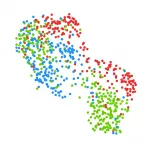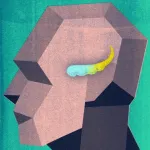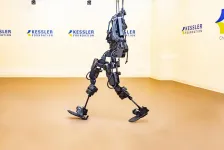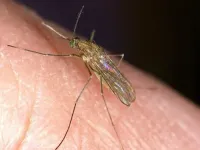INFORMATION:
Translation results
The work was developed at iMM, in collaboration with the Gulbenkian Institute of Science, BioISI- Biosystems & Integrative Sciences, Faculty of Sciences, University of Lisbon, the Sanger Institute and the University of Cambridge (UK) and the Institut Curie ( France).
The study was funded by the ENLIGHT-TEN / H2020 network, co-funded by the ERDF through POR Lisboa 2020 - Lisbon Regional Operational Program, from PORTUGAL 2020, and by the Fundação para a Ciência e a Tecnologia
Elucidating how the production of antibodies is regulated, one cell at a time
2021-05-28
(Press-News.org) A study coordinated by Luís Graça, principal investigator at the Instituto de Medicina Molecular João Lobo Antunes (iMM; Portugal) and Professor at the Faculty of Medicine of the University of Lisbon (FMUL) used lymph nodes, tonsils and blood, to show how the cells that control production of antibodies are formed and act. The results published now in the scientific journal Science Immunology* unveiled key aspects about the regulation of antibody production, with significant importance for diseases where antibody production is dysregulated such as autoimmune diseases or allergies.
In the last few months we witnessed the importance of vaccine-induced antibody protection against infections like COVID-19. However, it has been very difficult to study the human cells involved in the production of antibodies after vaccination, as this process takes place in the lymph nodes and not in the blood. To study this process, it was necessary to use emerging technologies for the sequencing and identification of genes in each individual cell. "To understand the power of this technology, we must note that all of our cells have the same genes. However, a cell like a lymphocyte uses a different combination of genes compared to a neuron. Thus, after vaccination, when a lymphocyte starts the process of controlling the production of antibodies, it will turn on some genes and turn off others. This is what we studied for hundreds of cells simultaneously", explains Luís Graça.
The difficulty of the process can be appreciated if we remember that about 20 years ago the sequencing of the human genome required a large group of laboratories in several countries benefiting from a series of further developments for over 10 years. Now, this sequenced genome is available for scientists to study the activity of genes in hundreds of independent cells. Something that would have been impossible a few years ago. Saumya Kumar, the first author of the work, says: "When the study started four years ago, we did not have the experimental tools needed and the advances in technology have been extraordinary. Using omics technology offered an incredible solution to this problem and we ended up using it".
The information thus obtained allowed the researchers to study, in great detail, the genes and molecules involved in regulating the production of antibodies. In this way, a wide range of opportunities open up to attempt the manipulation of some of these molecules for enhanced production of antibodies in vaccines, or to decrease the production of antibodies in diseases caused by them (such as autoimmunity or allergy).
In the words of Luís Graça: "When the biological systems of our organism are not properly regulated, disease arises. It is the knowledge of the organism's regulation that allows to correct these pathological situations restoring the healthy balance of a well regulated system".
This study also demonstrates that science has no boundaries: the group at iMM includes scientists from different nationalities, with different skills, from clinicians to bioinformaticians.
ELSE PRESS RELEASES FROM THIS DATE:
Declining biodiversity in wild Amazon fisheries threatens human diet
2021-05-28
A new study of dozens of wild fish species commonly consumed in the Peruvian Amazon says that people there could suffer major nutritional shortages if ongoing losses in fish biodiversity continue. Furthermore, the increasing use of aquaculture and other substitutes may not compensate. The research has implications far beyond the Amazon, since the diversity and abundance of wild-harvested foods is declining in rivers and lakes globally, as well as on land. Some 2 billion people globally depend on non-cultivated foods; inland fisheries alone employ some 60 million people, and provide the primary source of protein for some 200 million. The study appears this week in the journal Science Advances.
The ...
A fiery past sheds new light on the future of global climate change
2021-05-28
Centuries-old smoke particles preserved in the ice reveal a fiery past in the Southern Hemisphere and shed new light on the future impacts of global climate change, according to new research published in Science Advances.
"Up till now, the magnitude of past fire activity, and thus the amount of smoke in the preindustrial atmosphere, has not been well characterized," said Pengfei Liu, a former graduate student and postdoctoral fellow at the Harvard John A. Paulson School of Engineering and Applied Sciences (SEAS) and first author of the paper. "These results have importance for understanding the evolution of climate change from the 1750s until ...
Researchers create new CRISPR tools to help contain mosquito disease transmission
2021-05-28
Since the onset of the CRISPR genetic editing revolution, scientists have been working to leverage the technology in the development of gene drives that target pathogen-spreading mosquitoes such as Anopheles and Aedes species, which spread malaria, dengue and other life-threatening diseases.
Much less genetic engineering has been devoted to Culex genus mosquitoes, which spread devastating afflictions stemming from West Nile virus--the leading cause of mosquito-borne disease in the continental United States--as well as other viruses such as the Japanese encephalitis virus (JEV) and the pathogen causing avian malaria, a threat to ...
Same difference: Two halves of the hippocampus have different gene activity
2021-05-28
DALLAS - May 28, 2021 - A study of gene activity in the brain's hippocampus, led by UT Southwestern researchers, has identified marked differences between the region's anterior and posterior portions. The END ...
Exoskeleton-assisted walking may improve bowel function in people with spinal cord injury
2021-05-28
East Hanover, NJ. May 28, 2021. A team of researchers has shown that physical intervention plans that included exoskeleton-assisted walking helped people with spinal cord injury evacuate more efficiently and improved the consistency of their stool. This finding was reported in Journal of Clinical Medicine on March 2, 2021, in the article "The Effect of Exoskeletal-Assisted Walking on Spinal Cord Injury Bowel Function: Results from a Randomized Trial and Comparison to Other Physical Interventions" (doi: 10.3390/jcm10050964).
The authors are Peter H. Gorman, MD, of the University of Maryland School of Medicine, Gail F. Forrest, PhD, of Kessler Foundation's Tim and Caroline Reynolds Center for Spinal Stimulation, Dr. William Scott, of VA Maryland Healthcare System, ...
New tool activates deep brain neurons by combining ultrasound, genetics
2021-05-28
Neurological disorders such as Parkinson's disease and epilepsy have had some treatment success with deep brain stimulation, but those require surgical device implantation. A multidisciplinary team at Washington University in St. Louis has developed a new brain stimulation technique using focused ultrasound that is able to turn specific types of neurons in the brain on and off and precisely control motor activity without surgical device implantation.
The team, led by Hong Chen, assistant professor of biomedical engineering in the McKelvey School of Engineering and of radiation oncology at the School of Medicine, is the first to provide direct evidence showing noninvasive, cell-type-specific ...
Starting local
2021-05-28
Corals are in trouble. All across the globe the diverse and dynamic ecosystems are taking huge hits year after year. The Great Barrier Reef has lost half of its coral since 1995. Scientists are seeing similar declines in reefs from Hawai'i to the Florida Keys and across the Indo-Pacific region.
The widespread decline is fueled in part by climate-driven heatwaves that induce coral bleaching -- the breakdown of the relationship between shallow-water coral and the symbiotic algae they rely upon for nutrients.
Climate change is a clear and present danger to the persistence of coral reefs, and global reductions in carbon emissions is ...
Exoskeleton therapy improves mobility, cognition and brain connectivity in people with MS
2021-05-28
East Hanover, NJ. May 28, 2021. A team of multiple sclerosis (MS) experts at Kessler Foundation led the first pilot randomized controlled trial of robotic-exoskeleton assisted exercise rehabilitation (REAER) effects on mobility, cognition, and brain connectivity in people with substantial MS-related disability. Their results showed that REAER is likely an effective intervention, and is a promising therapy for improving the lives of those with MS.
The article, "A pilot randomized controlled trial of robotic exoskeleton-assisted exercise rehabilitation in multiple sclerosis," (doi: 10.1016/j.msard.2021.102936) was published on April 4, 2021, by Multiple Sclerosis and Related Disorders. It is available open access at https://www.msard-journal.com/article/S2211-0348(21)00203-0/fulltext.
The ...
Older adults with cerebral palsy need more, receive less physical therapy
2021-05-28
Adults with cerebral palsy are more likely to experience the debilitating pains of musculoskeletal disorders, but they receive significantly less physical therapy for those ailments, according to a recent study.
The findings, published in Disability & Health, analyzed four years of Medicare service claims from community-living older adults with and without cerebral palsy who had one or more ambulatory claims for a musculoskeletal diagnosis. Fewer than one-third of general population patients utilized physical therapy. Those with cerebral palsy, despite having greater risk of secondary comorbid conditions, received even less physical therapy.
"The results are staggering, but they support our hypothesis that people with cerebral palsy receive inequitable health care," says Mark ...
Climate change makes West Nile virus outbreaks 'plausible' in UK
2021-05-28
Climate change will make outbreaks of West Nile virus more likely in the UK within the next 20-30 years, scientists say.
West Nile virus is spread by mosquitoes and has no vaccine. Most people have no symptoms, but it can cause serious neurological disease.
Scientists from the UK Centre for Ecology & Hydrology (UKCEH), Biomathematics and Statistics Scotland (BioSS) and the University of Glasgow developed a new model to determine the risk of a West Nile virus outbreak in the UK.
They found the risk is low for the next two to three decades, but will increase as temperatures ...





